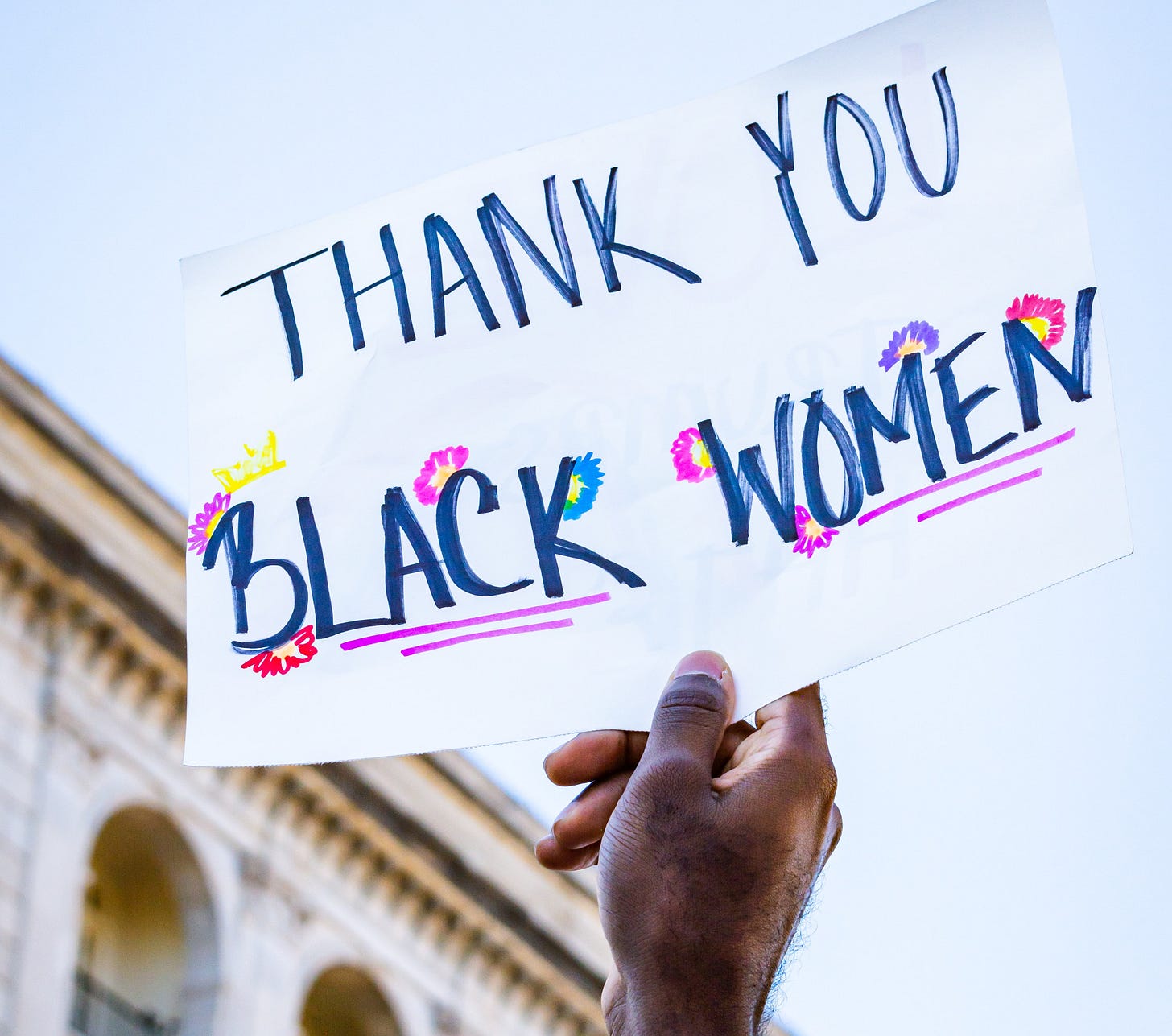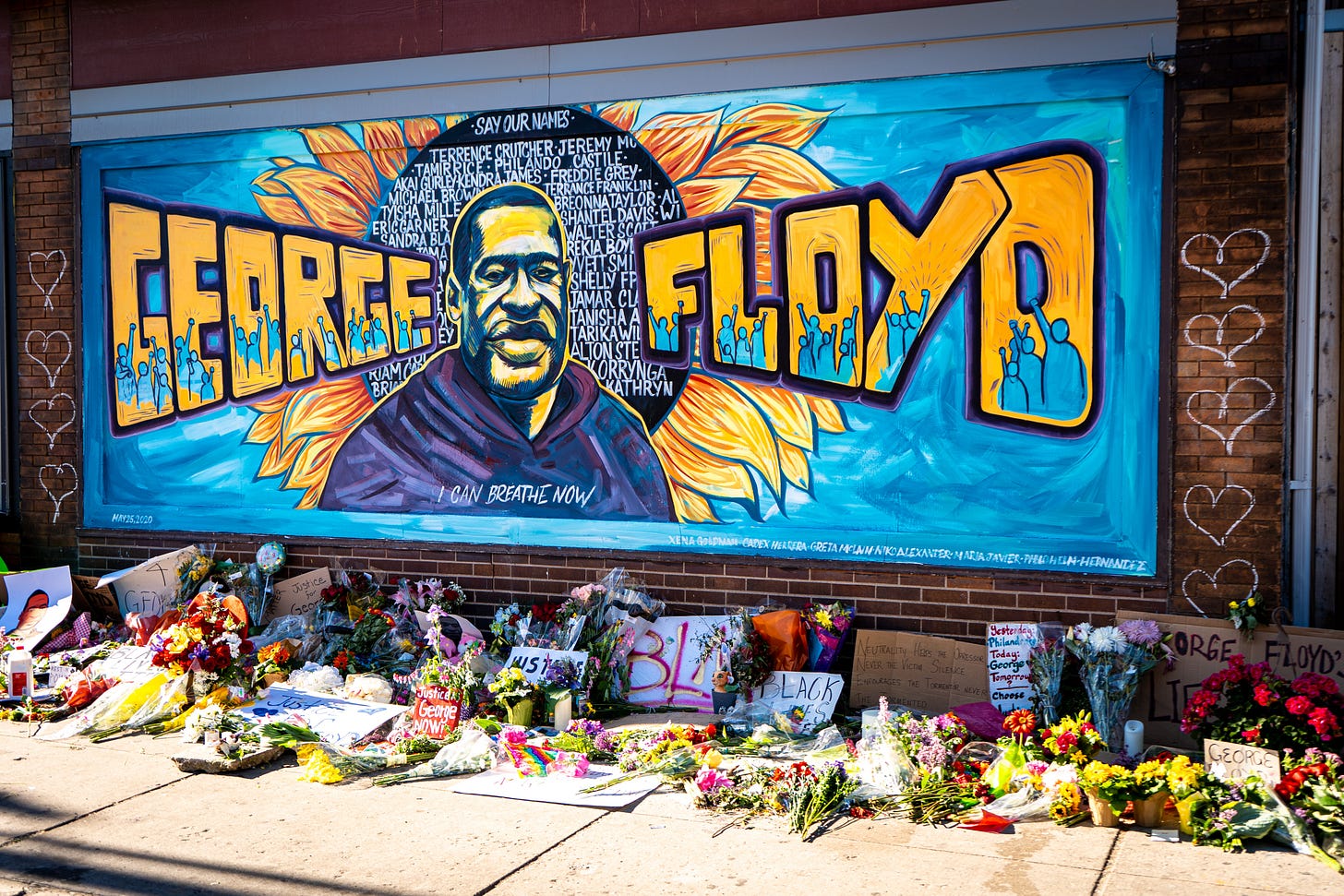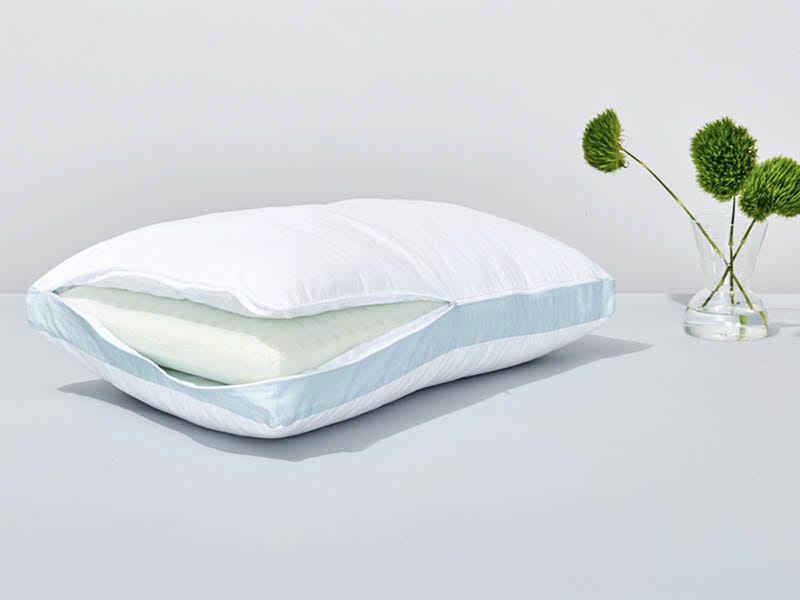We gotta start holding white women accountable for their violence towards Black women
Megyn Kelly’s latest commentary on Oprah and Meghan Markle ignores the racism and sexism Black women have faced since this country’s inception. It’s time to root it from our public discourse.
A major headline from Oprah’s interview with Prince Harry and Meghan Markle is that racism drove the couple from the Royal family. Markle, if you recall, said before the birth of her son Archie that there were “concerns and conversations” with a member of the royal family about how dark the first great-grandchild of Queen Elizabeth II’s skin might be when he’s born. (Neither she nor Prince Harry identified the person, but Oprah confirmed it wasn’t the queen or Prince Phillip. Markle also shared how it felt to learn that Archie wouldn’t be given the title of prince and would be denied security protection amid relentless racist harassment. But as Cady Lang notes for Time, racism influenced how Markle was covered as a royal even before she was an official member of the family. Prince Harry called out racist and sexist press and social media in a public statement via Kensington Palace when he started dating Markle in 2016 and publicly defended her again after their marriage and the birth of Archie. So the fact that the couple is having a girl and Prince Harry’s father stopped taking his calls was personally more shocking than the racism Markle suffered through.
It’s also unsurprising how conservative media has circled the wagons to disparage both Markle and Oprah. (Lloyd Grove at The Daily Beast has an excellent summary of all the right-wing reproofs, if you’re interested in that kind of stuff.) But it was Megyn Kelly who really seemed out of pocket. “Give me a break,” she wrote in one of several tweets about the interview. “Have you ever seen such privileged people wallowing in their own (perceived) victimhood like this? In another, she called Oprah out for failing to ask sufficient follow-up questions, a critique that falls flat if you watched the interview with good faith. This was before she grumbled about the rave reviews Oprah received for what’s likely to be a template for the next generation of celebrity interviewers. She also made a fool of herself on Good Morning Britain when she claimed Markle’s experience was “not about race” because Markle received favorable press when she and Harry first started dating. If you’re familiar with Kelly’s schtick, then you know this is a woman, as Salon’s Manuela Lopez Restrepo notes, “[who] has suggested a 14-year-old child body-slammed by a cop was ‘no saint,’ insinuated Sandra Bland shared responsibility for her death for not complying with police orders and mocked distrust in law enforcement among Black people as a ‘thug mentality.’”
What’s frustrating about her criticism is that it ignores the racism and sexism Black women have faced since this country’s inception. According to The 2020 Status of Black Women in The United States from the Institute for Women’s Policy Research, “Black girls and women also experience institutionalized racism; they are disproportionately punished in school, funneled into the criminal justice system after surviving physical or sexual abuse, disproportionately subjected to racial profiling and police brutality, and incarcerated at rates far exceeding their share of the population.” The report found that Black women also experience significantly higher rates of psychological abuse — including humiliation, insults, name-calling, and coercive control — than do women overall. When Kelly and her conservative colleagues berate Black women with their racist cultural commentary, it reinforces the idea that Black women are unworthy of protection if they work in public.
The origin of these misconceptions is rooted in white feminism, an ideology that places a premium on individualism and interprets equality as a result of the exploitation and exclusion of other women and marginalized people. “Rather than addressing the fact that we all encounter oppression in systems where others are privileged at our expense, it is easier to tell Black women experiencing racism and sexism to suck it up,” Evette Dionne, cultural critic and editor-in-chief of the feminist magazine Bitch, said. But to add insult to injury, this expectation often comes with a layer of white fragility. “You see this in office settings when white women are quick to cry and play the victim if they don’t like the way a Black woman has spoken to them,” added Brittany Bazile of the lifestyle blog A Little Britt of Fun. “You see it in how they tone-police Black women when we talk about our experiences. You see it in how they ‘well, actually…’ us or try to invalidate our feelings when we speak up about the harm they cause.”
Severina Ware, a Dallas-based community engagement manager and non-profit professional, told me this is how white women attempt to gatekeep the experiences of others to “keep in check how bad we all have it.” And according to Dionne, white women like Kelly ignore violence towards Black women because it enables them to buy into the notion that they’ve achieved certain goals or escaped certain pitfalls because of their merit rather than their privilege. “Take Megyn Kelly, for instance: When she left Fox News because she said she was being harassed, she expected the gains of feminism around workplace harassment to protect her. Meanwhile, she is okay with Black girls being body slammed in schools by school resource officers because that is not an experience she will ever have to endure.”
From economics to politics to pop culture, our country weaponizes white supremacy to dehumanize Black women and then expects them to turn around and clean up the mess. We saw this with Michelle Obama during the 2008 presidential election when she was expected to be “the closer” in an environment that painted her as the most-tired trope in identity politics: The Angry Black Woman. We saw it in 2017 when 98 percent of Black women in Alabama turned out to elect Doug Jones to the senate seat vacated by former T**** attorney general Jeff Sessions. Most recently, we watched Black women on the frontlines in Portland during last summer’s protests and in the 2020 presidential election, where Stacey Abrams led the movement to flip Georgia blue and return control of the Senate to the Democrats. “Black women are always going to fight for the greater good. But standing up for ourselves and what’s right comes at a cost,” Sa'iyda Shabazz wrote for Scary Mommy in January. “When we put ourselves out there, people aren’t going to like it and that can put us at risk of bodily harm, job loss and more.”
Still, Black women are undeterred in speaking their truth. “I’m a Black divorced mom,” Ware said. “If I don’t show up for myself, my daughter, or the numerous Black women around the world that look like me, who will?” Dionne spoke of the lineage of Black women she was born into. “[These women] stood fully in the truths of their experiences and used those experiences as fuel for making the world better for their communities. Intimately knowing that history, which includes women like Fannie Lou Hamer, Mary McLeod Bethune, and Ida B. Wells-Barnett, allows me to confront sexism and racism head-on, challenge other oppressions that don't specifically impact me on a personal level but are drowning my community, and stand tall in the truth of who I am.” Bazile agrees: “My authenticity, being an ally to others, and being an accomplice in dismantling the systems that harm us all is more important to me than the opinion of anyone else. To be frank, I don’t tolerate bullshit and I do not care what people think about it — especially people who consistently harm Black women or who consistently benefit from harm that comes to Black women.”
We all can — and must — do more to protect Black women from violence regardless of the source of it. For Dionne, it starts with believing Black women when they say they have been harmed as the default. This shifts the onus of disproving harm on the accuser instead of the survivor. “Meghan Markle literally gains nothing from coming out publicly against one of the most powerful monarchies in the history of the world. She has everything to lose in that scenario, and yet, she is still disbelieved, doubted, and accused of ‘playing the victim.’” Bazile encouraged us to interrogate the language we use when we speak about Black women and to elevate our awareness of the power dynamics between Black and white women. It’s also critical to call on politicians and corporate executives to empower women through policies and opportunities to claim space and be rewarded in economic and electoral value for their contributions. And finally, as Ware told me: Use your voice when you see white violence. “Call it out! Stand up to white women and let them know that you’ve got time today.” It’s the least we can do.
In The Know
Charles M. Blow at The New York Times on the allies’ betrayal of George Floyd:
In every arena it feels that many of the people who performed allyship during the summer protests are regressing to familiar tribalism that doesn’t protect Black life and excuses Black death.
…
The real mystery is why some people will go to any end to rationalize state violence against Black bodies. In fact, that is a misstatement. It’s not a mystery. This kind of rationalization is a feature of our society. We have made blackness synonymous with aggression and the police synonymous with protection. Anything that challenges that precept must be put down.
In this equation, to far too many Americans, Floyd is just collateral damage, an unfortunate accident, while a noble defender of peace and order attempts to do his duty. In this equation, Floyd is dehumanized. In it, he is betrayed. What is revealed is the bottomless American capacity to countenance cruelty.
Doreen St. Félix at The New Yorker on the rigorous empathy of “Oprah with Meghan and Harry”:
This instantly iconic artifact of pop culture could not have been without Oprah, a truly singular examiner. Is what she does simply interviewing? She certainly asks questions, difficult ones, and doggedly follows up on hedges or evasive responses. But she is also something of an emissary, a reactive translator of emotion, a master weaver, pulling disparate revelations into a collective portrait that colonizes the mind. The question is never just a question; the subject is helpless to her storytelling, a rigorous empathy that was like refuge to the Duke and Duchess, who have long been prostrate to the narratives of the tabloids. “Were you silent,” Oprah asked Markle, “or were you silenced?” When she does this, it is like opening a door. And Markle walked right in.
Ashley C. Ford at Marie Claire on the Stacey Abrams effect:
Abrams isn’t in it to remind you of the power she wields as much as to activate your understanding for how much power you wield. And how that power can be used toward a collective good. Most people, she believes, don’t realize how much they can do because they don’t already know how to do everything they want. In addition to that, sometimes they’re actively being misled about their options. “One of the most successful gaslighting operations in American history has been the disinformation [campaign] about our power, and because so many pieces of our society have been weaponized against us, we’ve also been conditioned to believe that weaponization is innate, that what they are doing is the right thing, and everything we’re asking for is a departure.”
Eugene Robinson at The Washington Post on why Democrats shouldn’t wait for Republicans to come to their senses:
There may come a day when Trump’s influence over his party has waned to the point where it would make sense for Biden and the Democrats to attempt to boost the GOP’s small anti-Trump wing. Such efforts would be futile now, however. If Biden can’t get Republicans to vote for a bill that three-quarters of the public supports, he probably can’t get them to vote for anything. He should keep reaching across the aisle but shouldn’t expect anyone to reach back — and he shouldn’t let that stop him from acting once he’s made the effort.
Jeff Beer at Fast Company on how Ben & Jerry’s head of global activism strategy Chris Miller executes the business’s corporate activism:
“We’ve come to understand that we can and must do more than work on one issue,” says Miller, noting how the issues of voting rights and racism are directly related. “We must look for the points of intersectionality, and we must commit ourselves to an ongoing body of work focused on deconstructing the systems and structures that perpetuate racism in America. Our work is evolving away from single-issue campaigns to a broader body of work.”
Anne Applebaum and Peter Pomerantsev at The Atlantic on making the internet less awful:
Let your imagination loose: What would it really mean to have human rights online? Instead of giving private companies the ultimate decision about whose accounts—whether yours or the president’s—should be deleted, it might mean online citizens could have recourse to a court that would examine whether they violated their terms of service. It would also mean being in charge of your own data. You could give medics all the information they need to help fight diseases, for example, but would also be guaranteed that these data couldn’t be repurposed. If you were to see advertising, political or otherwise, you would have the right to know not only who was behind it, but how your data were used to target you specifically.
Michelle Obama is hitting the late-night circuit next week to promote her new Netflix kids’ show.
The Centers for Disease Control and Prevention released new guidelines for fully vaccinated Americans.
President Biden’s pandemic rescue plan will give the poorest 20 percent of Americans a 20-percent boost in income.
Bummer: Joe Manchin, the so-called moderate West Virginia senator is unlikely to support a Democratic infrastructure bill unless it has Republican support.
US nursing homes are facing a staffing crisis that a higher minimum wage could begin to fix.
Fashion designer and alleged sex predator Alexander Wang could have kept this weak apology to his accusers.
Kenneth L. Walker, Breonna Taylor’s boyfriend, will no longer face the possibility of prosecution for the attempted murder of a police charge after a judge signed an order permanently closing the case.
Walmart and TikTok are partnering in an unexpected alliance to host a live stream shopping event on the short-form video app.
Music video app Triller is the new host of the battle series Verzuz.
Michael’s Pick
Pluto Pillow ($95): The older I get, the more intentional I am about elevating my sleep life. Case in point: I’m *thisclose* to purchasing a personalized pillow from this brand that customizes each cushion based on your unique sleep profile.




